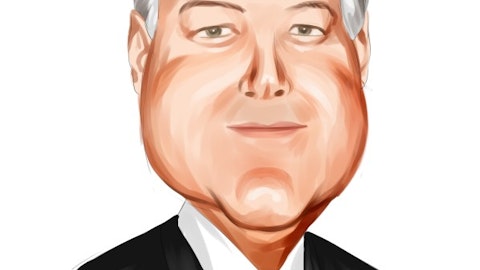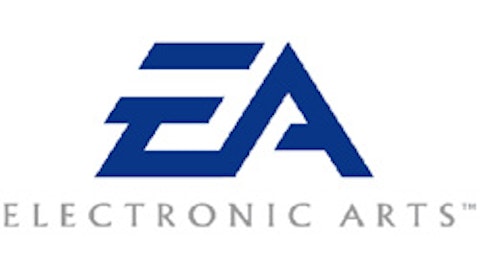Hedge funds capture a significant fraction of their alpha from small-cap stocks, primarily because the information surrounding this space is less efficient. At Insider Monkey, we’ve empirically tested this phenomenon, and according to our analysis, hedge funds’ top small-cap picks generate an alpha of about 120 basis points per month.
We started publishing a quarterly newsletter at the end of August, and since then, until the end of December, this strategy returned 14.3% vs. 2.1% for the S&P 500 index (learn more about our small-cap strategy).
Let’s take a look at one hedge fund in particular: Debra Fine’s Fine Capital Partners. Using our database of 13F filings from the SEC, we’ll take a look at the fund’s top five small-cap holdings (see Fine Capital Partners’ full 13F portfolio). Each has a market capitalization between $1 billion and $5 billion, which is the same criterion used in our market-beating strategy.
Fine’s largest small-cap holding is coincidentally the top stock pick of her entire 13F portfolio: Assured Guaranty Ltd. (NYSE:AGO). Assured Guaranty is a holding company, and its subsidiaries provide credit protection to state governments and large infrastructure projects. The company has seen its shares lose over 8% in value over the past 12 months, but recent upward movement has been promising.
As we mentioned in our previous analysis of Wilbur Ross, the so-called King of Bankruptcy (see our full coverage here), “Assured was one of the few credit protection firms to pull out of some of the housing market’s riskiest assets much earlier than its competitors.” This move sheds light on the strong managerial structure that’s present at AGO, and at a forward P/E below 6x, there’s clear value here. The bears will cry that the company faces greater competition than most insurers, but it’s hard to deny Fine’s conviction has merit.
Next up on our list is Coinstar, Inc. (NASDAQ:CSTR), sitting at the No. 2 spot in Fine’s portfolio. Most investors consider Coinstar and Redbox kiosks to make up the entirety of the company’s growth prospects, but the fact of the matter is that it has quite a bit more potential on the horizon. The company has already partnered with Starbucks to manufacture coffee-dispensing stations, and has plans to enter the electronics, photo, gift card and fresh food industries. This stock currently trades at below-average valuation metrics across the board, and it’s hard to envision a future where Coinstar’s kiosks won’t have a greater presence in consumers’ everyday lives.
Who’s the best of the rest?
In third place we have Live Nation Entertainment, Inc. (NYSE:LYV), which is the fifth largest position in Fine’s stock portfolio. As its name suggests, Live Nation is a live concert company, which focuses on both boutique and large-scale events, with a part-ownership in the House of Blues chain. The sell-side expects Live Nation to experience accelerating EPS growth over the next half-decade, with particularly strong growth over the next two years. With a forward P/E in excess of 300x, though, these prospects may be already baked into the stock, so to speak. It may be wiser to wait for a more attractive entry point.
One spot after Live Nation in Fine’s portfolio lays PolyOne Corporation (NYSE:POL), another small-cap stock. PolyOne operates in one of the most dependable segments around—polymer materials and additives—and has also seen remarkable appreciation over the past 12 months, gaining 67%. A dividend yield below 1% isn’t outstanding, but a sales multiple below 0.7x still indicates there’s some value to be had. PolyOne is coming off four consecutive quarterly earnings beats, and reports its Q4 (FY2012) financials on January 29th; we’ll be watching closely.
Debra Fine’s fifth favorite small-cap stock is Hornbeck Offshore Services, Inc. (NYSE:HOS), sitting at the No. 7 spot in her portfolio. Hornbeck provides water-based support to offshore oil and gas companies, and has lost close to 10% over the past six months. Generally speaking, a more bullish onshore energy environment—particularly in the U.S.—has given the bears a reason to sell anything deepwater-related.
Still, over the longer term, Hornbeck is expected to generate annual earnings growth of about 25% through 2017. Recent uncertainties have pushed the stock down to 16 times forward earnings, so there are reasons for investors to consider buying in.
For more related coverage, continue reading here:
Here’s How One Hedge Fund Lost Twelve Million Dollars
The Terrible 20: Underperforming Stocks with High Short Interest
Why Does Billionaire Louis Bacon Love AGO?
Disclosure: I have no positions in any of the stocks mentioned in this article






